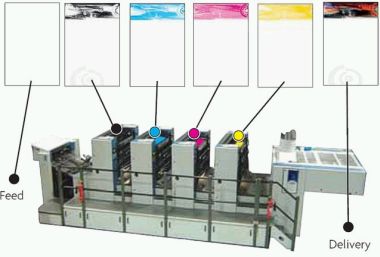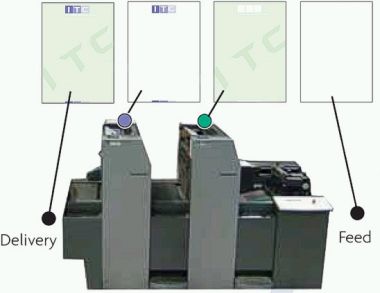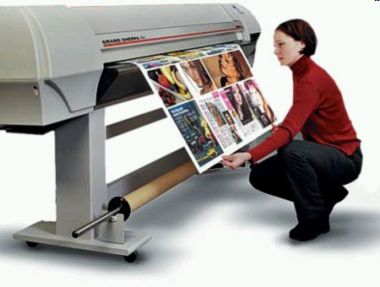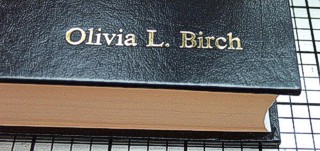Printing Technologies
Introduction
At Plain-Talk Print, we use a variety of printing
and finishing technologies to balance the need for top quality at affordable
prices. All printing technologies have advantages and
drawbacks. We can give you free, no-obligation advice on how to achieve your
the best results for the quantities you need, within your budget — simply
call our Design Advice Line on 01457 778788.
Offset litho printing
By far the most common, offset litho (often
shortened to just 'litho') is extremely cost effective for medium to very
long print runs. The intial expense is in making metal printing plates, but
once these have been created and loaded on to the press, they can produce
one or one million prints. The cost of the paper and ink is relatively very
small.
Ink is applied to the metal plates via series
of rollers and then, via another series of rollers, to the paper. Because
the
plates never actually touch the paper itself the printing operation is referred
to as 'offset'.
There are two ways of printing using this technique.
The first is process, or CMYK printing. CMYK refers to the four ink colours
used (cyan, magenta, yellow and black, known as in print parlance as key
— hence K).

By using these four colours it is possible
to print almost every colour of the spectrum. It is suitable for the vast
majority of colour printing and since the press is always loaded with these
four colours of inks, it is surprisingly inexpensive.
The other common use of offset litho machines
is called spot colour printing. This is used where precise colour matches
are needed.

Here, inks are specially mixed according to
a formula guide (most commonly Pantone®, but other guides exist) and
are loaded into the stations of the press. The diagram above shows a two-colour
letterhead being prepared with precisely-mixed green and purple inks.
Although it may seem strange, full colour process
is often cheaper than spot colour printing. This is because spot colour printing
is more labour-intensive — read more about this in our article
on Spot Colour vs. Full Colour Printing.
Digital printing
Digital printing covers a multitide of technologies,
but we use it to refer specifically to our Xeikon and HP Indigo digital presses.
Digital presses are very different from domestic
colour laser printers and colour copiers in that they use liquid inks rather
than powdered toners. The resulting prints have the feel of litho prints,
not heat-fused sheets such as those resulting from copiers and printers.
Our Xeikon press can also cope with much heavier stocks than other machines
— up to 350gsm (grams per square metre), whereas most laser printers
would struggle with anything about 160gsm.

Digital presses have the advantage over litho
where only short runs (ie. small quantities) are needed. Since there are
no plates to prepare and load the so-called makeready time is shortened considerably.
For the same reason, the press does not need to produce identical prints
as part of the same job — every print can be different if that is what
is required.
We use digital presses most commonly for
small orders of posters up to A2 in size. For larger posters, we use a different
printing technology entirely, known as large format printing.
Large format printing
Large format in this context refers to anything
larger than A3 in size. The printers which produce this work are also capable
of printing on an amazing variety of substrates (materials) which can withstand
all kinds of extreme environments.

Large format printers work in a similar way
to domestic inkjet printers but with a much larger platen (print width) and
often up to eight ink colours. This combination of features means that huge
prints can be produced, in our case up to 1,524mm wide, yet with true photographic
quality.
Large format printing is costly and therefore
the inks and materials are developed to last a long time. There are two kinds
of inks: dye-based, for indoor use, and solvent-based, which is resistant
to UV (ultraviolet) light from the sun's rays and therefore suitable for
outdoor use.
Among the many substrates we can print on using
the large format machines are:
- Photorealistic matt paper, suitable for the vast majority
of indoor uses and window displays.
- Wet strength paper, designed for use on billboards and
flat outdoor surfaces.
- Opaque adhesive film, which is used for permanent window
displays.
- Translucent adhesive film, for illuminated displays
such as backlit shop signage.
- Pressure sensitive vinyl, intended for vehicle graphics
but suitable for any permanent outdoor application.
- Banner vinyl, which is usually fitted with brass eyelets
and synthetic rope for affixing to fences and walls.
- Treviera polycloth, a lightweight yet strong fabric
ideal for printed flags.
To protect these prints we offer a variety
of mounting and encapsulation options including films of varying thicknesses
and finishes, depending on the intended use and location of the completed
print.
Because of the huge number of combinations
of sizes, materials and finishing choices we recommend you contact us for
advice on how to get the best solution for your large format printing needs
at the best price possible.
Other print technologies
Although the previous three technologies — offset
litho, digital and large format — cover the vast majority of our work,
there are always situations we need something a little different.
Hot foiling

Hot foiling works by pressing a specially made,
heated metal die against a coloured foil and the product to be printed. Where
the hot die meets the foil, it melts and is permanently bonded to the surface.
Although commonly used for books, as shown
above, it can be used on a variety of papers and cards (especially our card
badges) to great effect, but as might be expected from a process requiring
the manufacture of a metal
die, it is rather costly. Once the initial cost of the die has been met,
however, it can be used for subsequent print runs at a much lower cost.
Forcejet®
Our Forcejet inkjet printer is used for
overprinting lightweight paper items. The print quality is suited to adding
detail such as seat numbers to theatre tickets or addresses to mailpieces
and the machine processes these items very quickly.
Crash numbering
Used exclusively for NCR (no carbon required)
forms, crash numbering involves striking the topmost form of a set with metal
numerals on inked rotating wheels. The impact causes the number to appear
on all of the sheets in the set. The wheels rotate as the next set is moved
into position so that all the sets are numbered uniquely.
Questions
If you have any questions about anything in
this article, please feel free to contact us using our
Design Advice Line on 01457 778788 for plain-English
advice with no obligation whatsoever.
.








